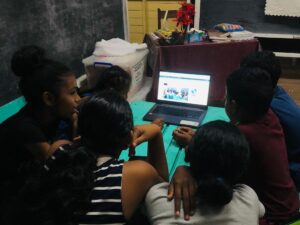Parents are a child’s first teacher, and involvement in their children’s learning is critical to their success. The evidence is consistent, and convincing: families have a major influence on their children’s achievement in school and through life.
When schools, families, and community groups work together to support learning, children tend to do better in school, stay in school longer, and like school more.
Many studies found that students with involved parents, no matter what their income or background, were more likely to
• earn higher grades and test scores, and enroll in higher-level programs.
• be promoted, pass their classes, and earn credits.
• attend school regularly.
• have better social skills, show improved behavior, and adapt well to school.
• graduate and go on to postsecondary education.

Several studies found that families of all income and education levels, and from all ethnic and cultural groups are engaged in supporting their children’s learning at home.
When parents talk to their children about school, expect them to do well, help them plan for college, and make sure that out-of-school activities are constructive, their children do better in school.
When schools engage families in ways that are linked to improving learning, students make greater gains. When schools build partnerships with families that respond to their concerns and honor their contributions, they are successful in sustaining connections that are aimed at improving student achievement. And when families and communities organize to hold poorly performing schools accountable, studies suggest that school districts make positive changes in policy, practice, and resources.
